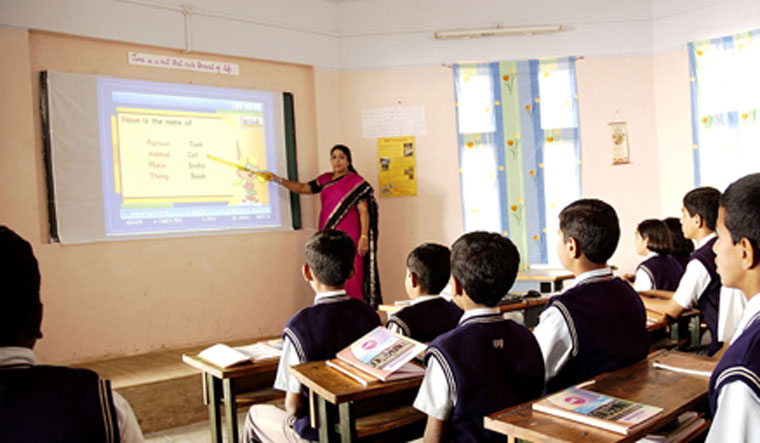India on Thursday rejected the findings of the Human Capital Index (HCI) report of the World Bank, which placed the country at the 115th position, lower than Nepal, Sri Lanka, Myanmar and Bangladesh.
The World Bank, in its first report on HCI, ranked 157 economies on parameters like child mortality, health and education.
In a statement, the Finance Ministry said the HCI score for India does not reflect the key initiatives that are being taken for developing human capital in the country.
"The Samagra Shiksha Abhiyan has been launched to focus on access and quality of education for the benefit of 197 million schoolchildren. Through the Ayushman Bharat programme, India has now launched the world's largest health insurance initiative providing 500 million citizens with adequate health coverage, and transforming 150,000 health centres into wellness centres to provide comprehensive primary healthcare services," it said.
The Pradhan Mantri Ujjwala Yojana has reduced drudgery and improved the health of about 38 million women by providing them with LPG connections to replace firewood and coke-based cooking stoves, it added.
"In pursuing the agenda of financial inclusion, the Pradhan Mantri Jan Dhan Yojana has provided access to formal banking services to over 328 million persons. The share of account ownership among rural adults has more than doubled from 33 per cent in 2011 to 79 per cent in 2017, significantly bridging the rural-urban gap," it said.
Financial inclusion and the Aadhaar identification system has enabled India to make direct cash transfer of about $64 billion to citizens, thus improving governance and social protection, it said.
"The Government of India, therefore, has decided to ignore the HCI [report] and will continue to undertake its path-breaking programme for human capital development, aiming to rapidly transforming quality and ease of life for all its children," it said.
The Finance Ministry statement said the government has taken various initiatives for transforming human capital in India, touching lives of millions of people living in rural and tribal areas.
"The qualitative aspects of improved governance that have a strong correlation with human capital development cannot be and have not been captured by the way the HCI has been constructed," it said.
The gap in data and methodology overlook the initiatives taken by a country and, in turn, portray an incomplete and predetermined picture, it said, adding this, in fact, makes the case for the adoption of the index by more countries somewhat remote.
Also Read
"The hasty introduction of the HCI [report] by the World Bank may deny the larger human capital project its due despite the lofty objectives of the latter," it said.
Singapore topped the poll after it was highly rated for its universal healthcare system, education exam results and life expectancy figures, as per the HCI report released by the World Bank. It is followed by South Korea, Japan, Hong Kong and Finland.


